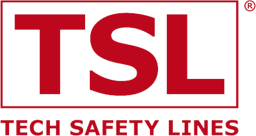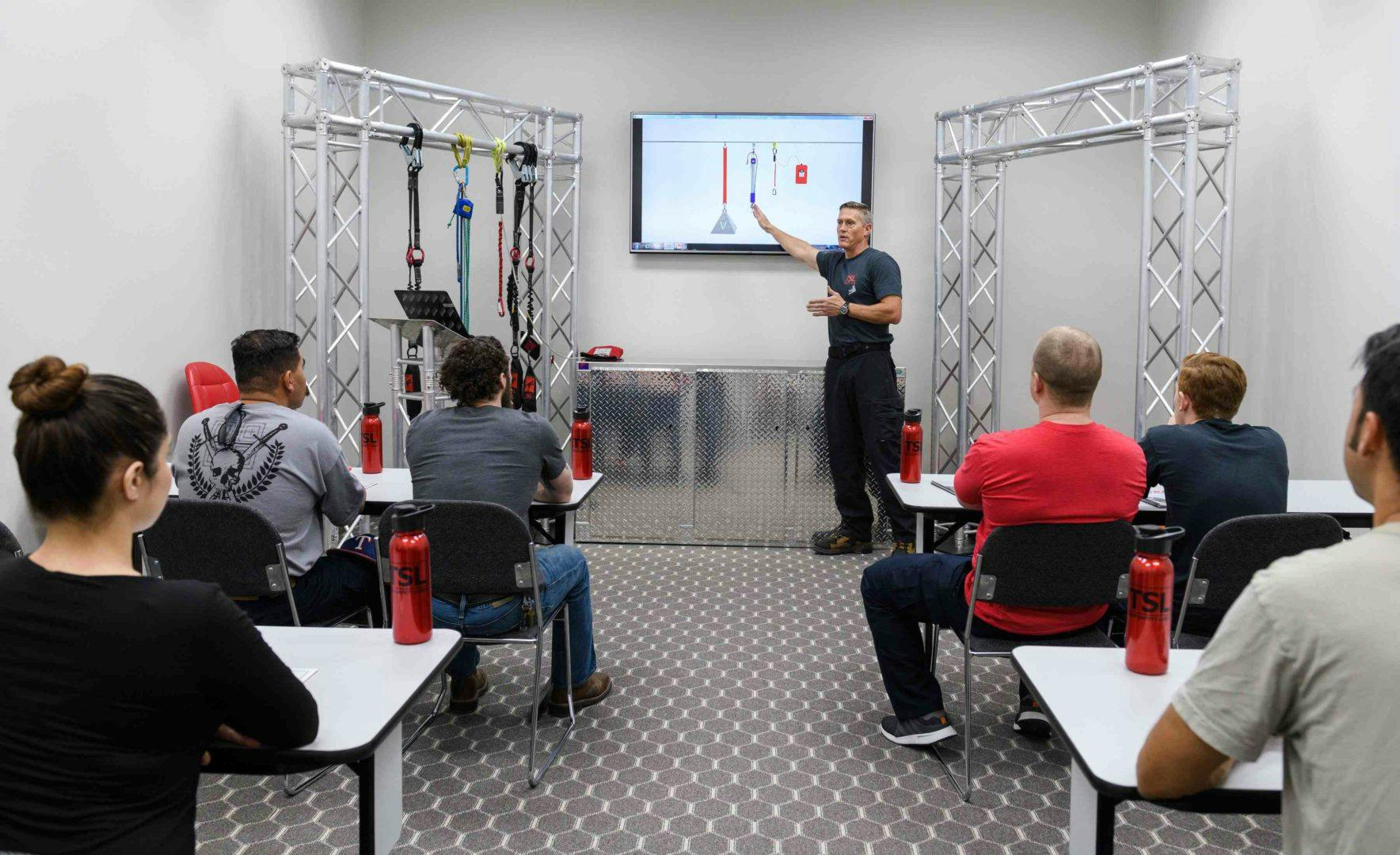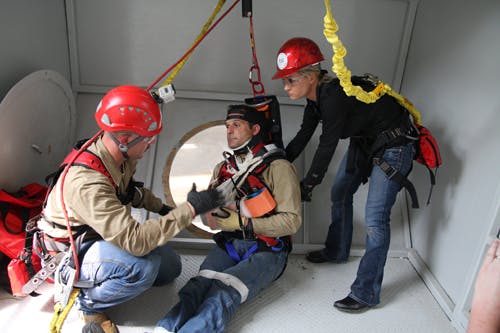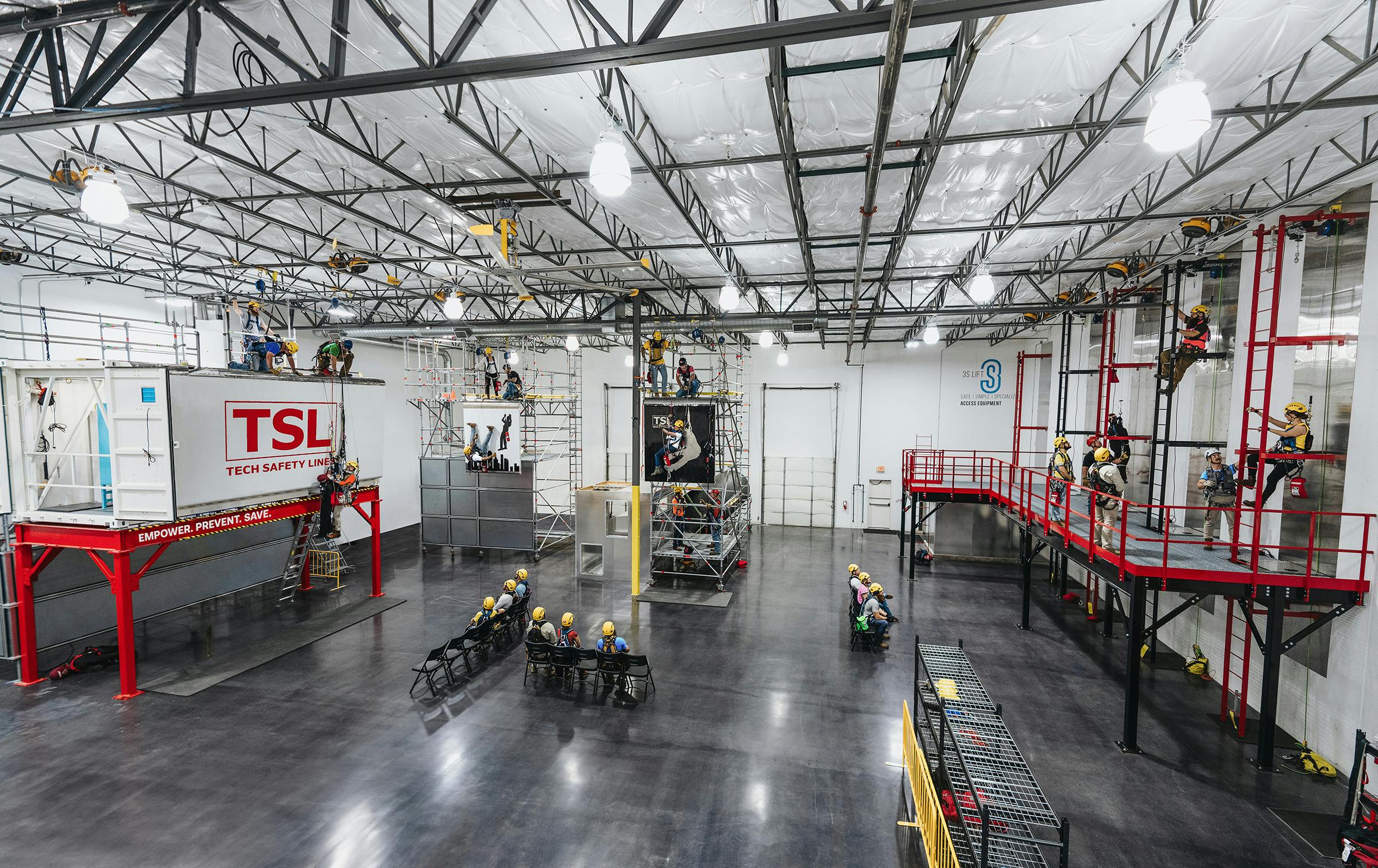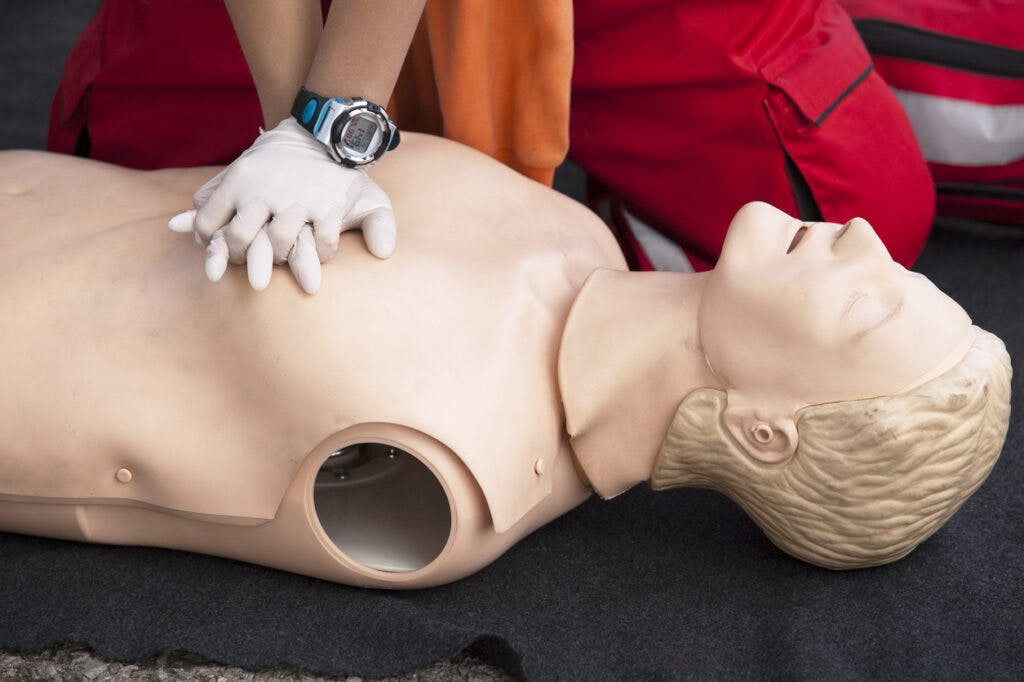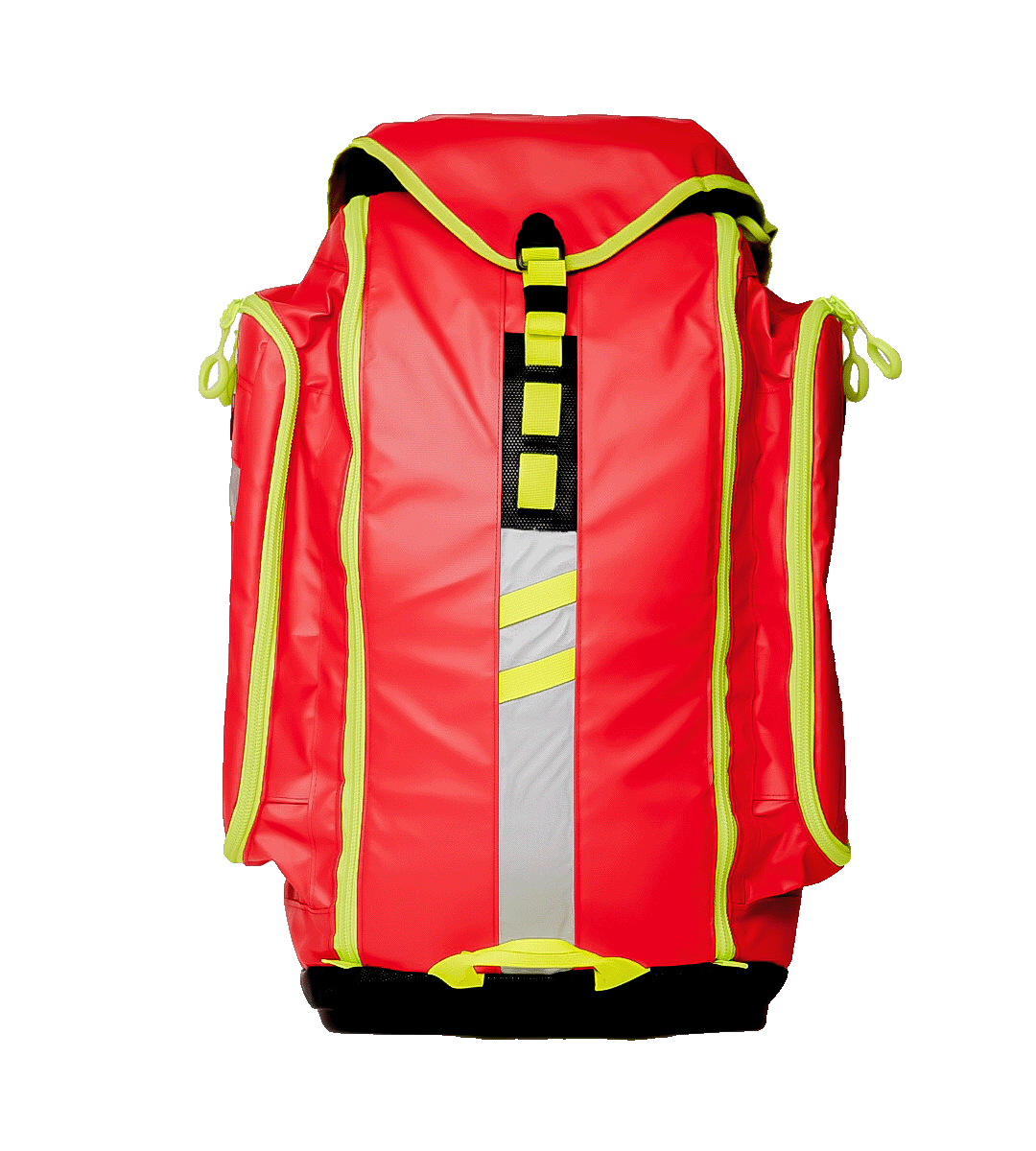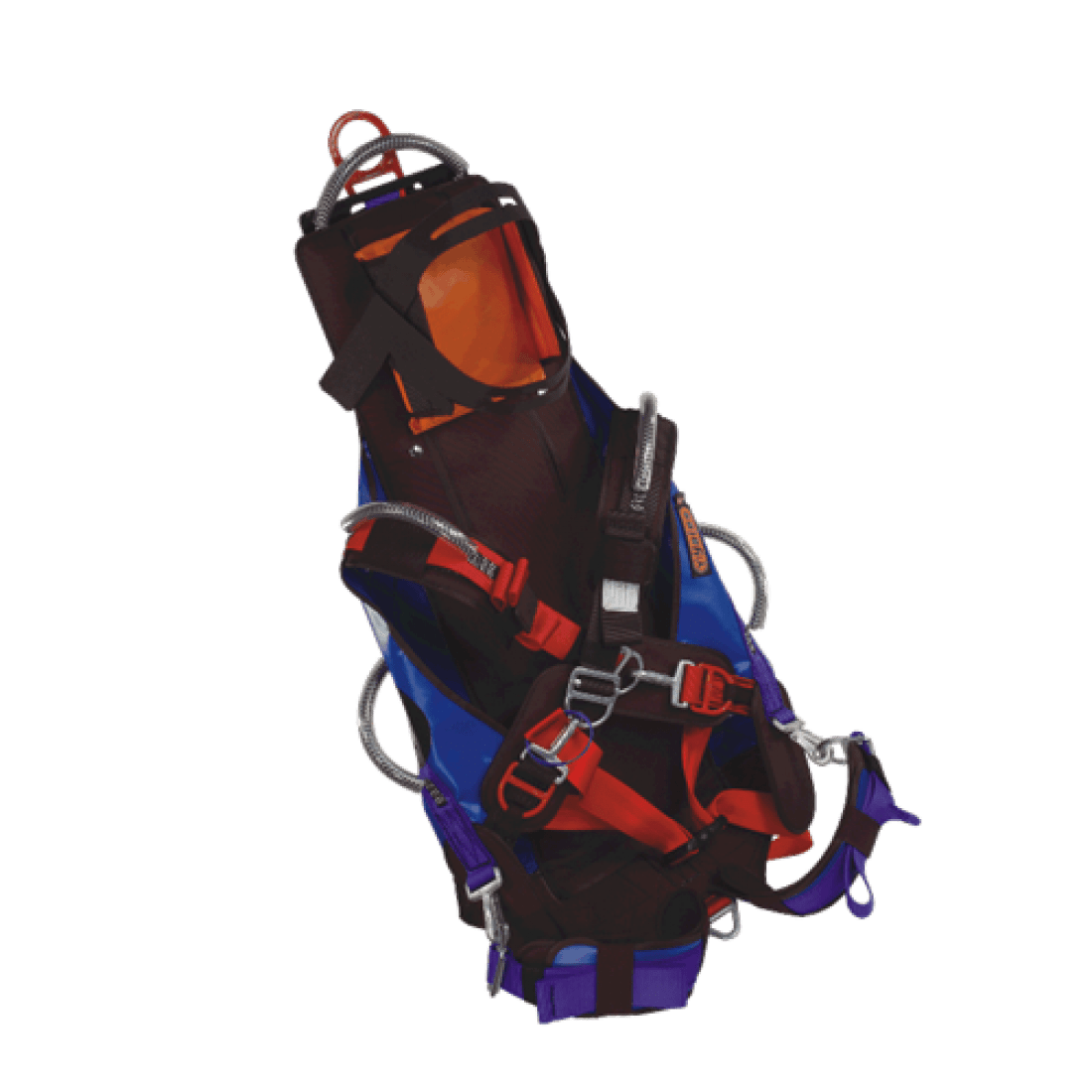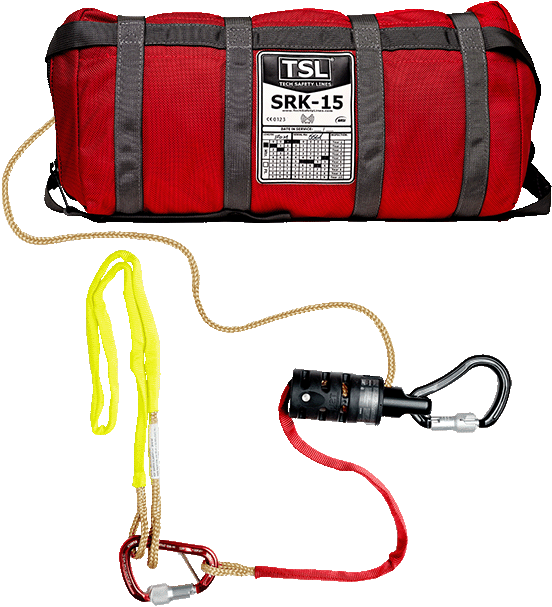GWO: Enhanced First Aid Training
Tech Safety Lines is the proud recipient of the GWO Training Company of the Year award across North and South America.
Both onshore and offshore wind industry professionals will learn lifesaving skills in the Enhanced First Aid (EFA) course designed by the Global Wind Organization (GWO) at our state-of-the-art facility. The EFA module enables course participants to administer safe, effective, and immediate Enhanced First Aid measures to save lives and give assistance in remote areas using advanced emergency equipment and medical teleconsultation. In the EFA course, participants will also receive an American Heart Association certification.
Our instructors have first-hand knowledge utilizing these lifesaving skills and provide students with an exceptional training experience.
Learn more about TSL's award winning GWO program here -TSL GWO Hub.
Course Duration: 3 Days
Price: $1,500 per student (volume discounts available). We can also combine the EFA and BST together which will be a 6day class, $3,000/ participant.
Validation: 24 months
Pre-Requisite: Be WINDA registered before arriving for the course
GWO Enhanced First Aid (EFA) training course includes:
- Introduction
- Risks, hazards and legislation
- Anatomy
- Management of an incident
- National emergency response
- Medical teleconsultation
- Lifesaving and enhanced first aid using primary and secondary survey (including airway management and oxygen)
- Pain management and further possible medication
- Scenario-based training
- Evaluation
New technicians can enter via the main EFA training which consists of Basic First Aid (FA) and EFA elements and two certificates FA and EFA will be issued.
If you already have a GWO Basic First Aid (or refresher) FA (or FAR) certificate, you have the option of taking the Refresher First Aid (FAR) combined with EFA training elements and you will also receive two certificates, FAR and EFA, after successful completion of the training.
- Course Manual
- WINDA ID card
- Certificate of Completion
“I feel very confident in my training going forward. It was clear that the training was not to be just memorized, but methods and reasoning were to be utilized for real world scenarios. We were challenged in ways that forced us to use our equipment to achieve the task. The particular way we were shown a new technique which would then be used in the next exercise without much warning worked well.”
-Louis Finazzo, Duke Energy
GWO EFA certification is valid for 24 months.
The Enhanced First Aid Module covers the following objectives:
- Local legislation/risks/hazards and demands to ensure knowledge of the roles, responsibilities and rules that apply to Enhanced First Aid in Remote Areas
- The importance of carrying out basic and enhanced First Aid in a safe and sound manner, in accordance with the legislative requirements of their geographic location and according to European Resuscitation Council (ERC) and American Heart Association (AHA) guidelines
- Identifying and explaining ‘normal’ function, normal signs and symptoms of serious and minor injuries and illness related to the human body
- Demonstrating understanding and correct Order Of Management in an emergency situation in a Wind Turbine Generator (WTG) environment
- Delivering immediate enhanced first aid to stabilize the casualty, to include but not limited to:
– Stopping life-threatening bleeding
– Establishing and maintaining an airway
– Knowing the indications for and the use of Automated External Defibrillator (AED)
– Using basic and advanced First Aid equipment in a First Aid scenario
– Resuscitation
– Using standardized methodologies, specifically the Primary and Secondary Survey – based on the “C”-A-B-C-D-E principle - Assessing the casualty, for injury or acute illness, to determine if medical advice and external-to-incident support is required; to include but not limited to:
– Life-threatening bleeding, circulatory disorder
– Impaired consciousness
– Compromised airway, breathing, too slow or too fast
– Immediate life-threatening illnesses and other health problems especially with severe pain - Requesting telemedical consultation and medical/rescue assistance providing a concise and relevant report of the casualty’s condition and obtaining medical advice to further stabilize the casualty by using:
– Telemedical consultation through National resources (e.g. Coast Guard)
– Telemedical consultation through private contractor (where established) - Requesting immediate medical/rescue assistance providing a concise and relevant report of the casualty’s condition
- Preparing the casualty for transfer to a named evacuation/rescue point, including:
– Immobilization where required or other non-medical mitigation (e.g. cooling gels)
– Understanding the complexity and restrictions of medical pain relief and the role of clinical governance in the control of medication
– Accompanying the casualty, if required, to suitable medical facility and formally handing over the casualty
– Escorting the casualty to the named evacuation/rescue point providing continued enhanced first aid - Acting as a leader in first aid situations
- Administering safe, effective and immediate lifesaving and enhanced first aid measures to save life and give assistance in remote areas using advanced emergency equipment and medical teleconsultation, while having particular regard for personal-protection
Tour TSL's Training Center
We will work with your company to create customized training and equipment that works best for your company’s specific needs.
Course Equipment
Related
Courses
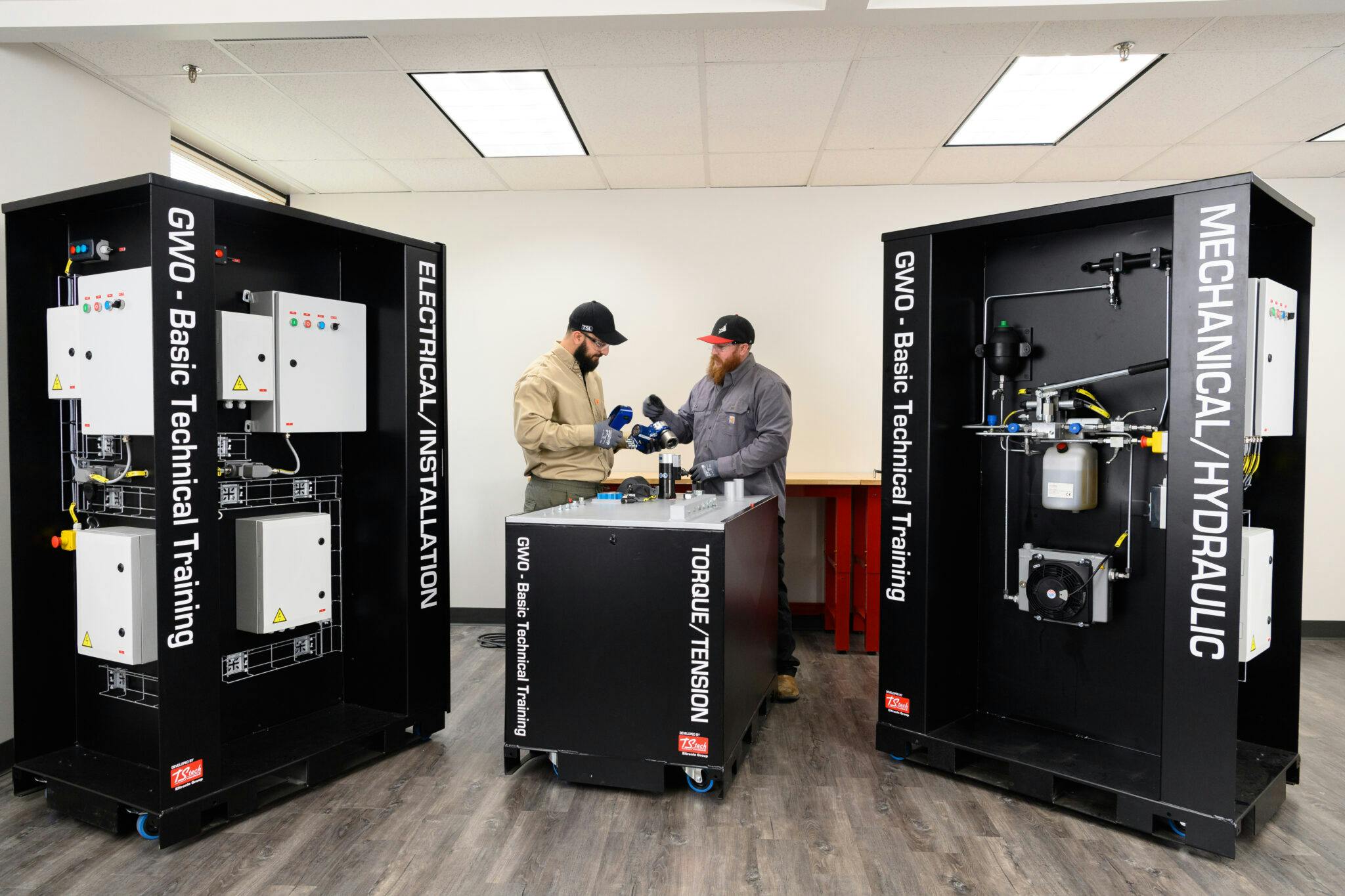
GWO: Basic Technical Training
Tech Safety Lines is the proud recipient of the GWO Training Company of the Year award across North and South America.
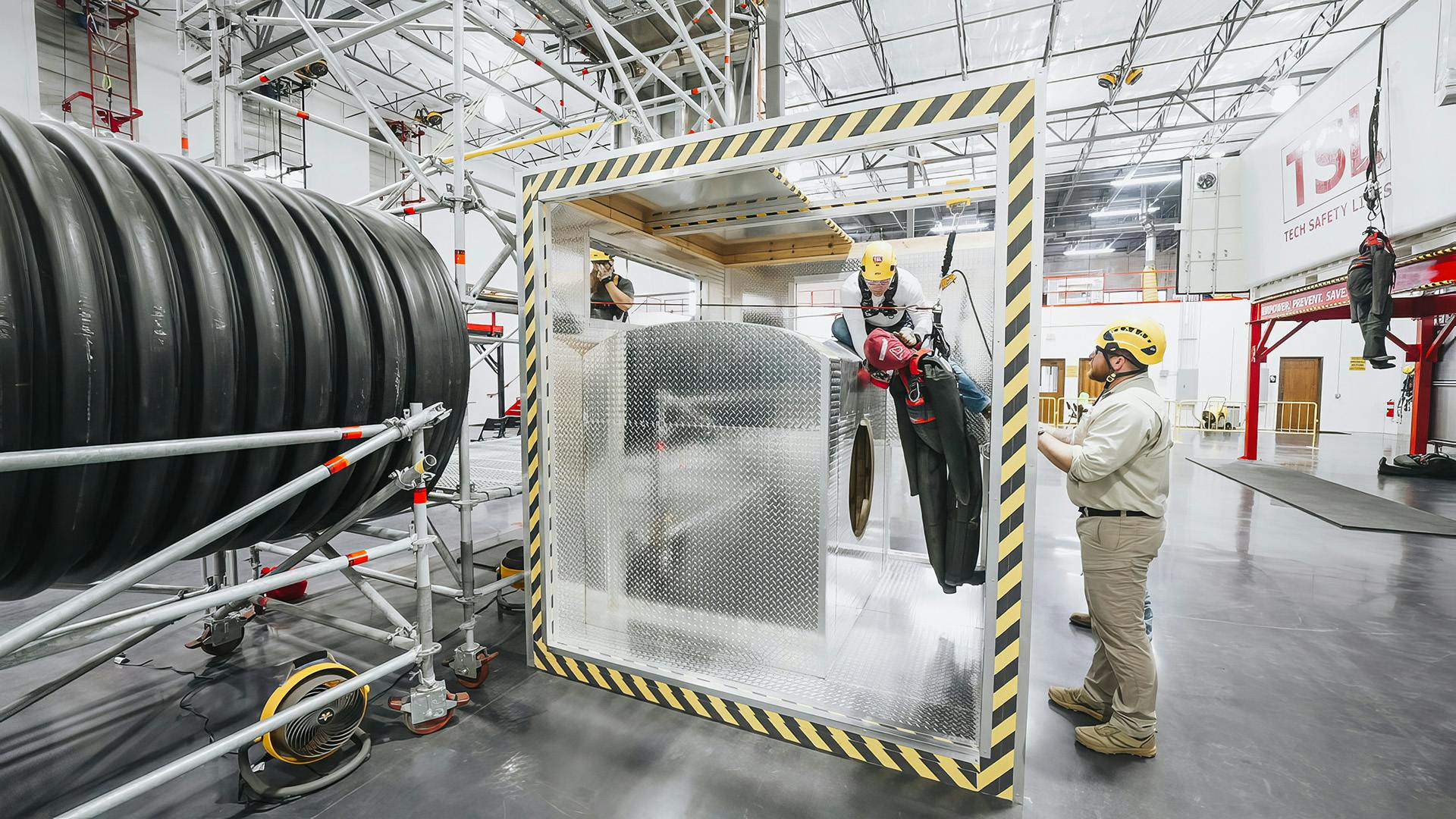
GWO: Advanced Rescue Training
Tech Safety Lines is the proud recipient of the GWO Training Company of the Year award across North and South America.
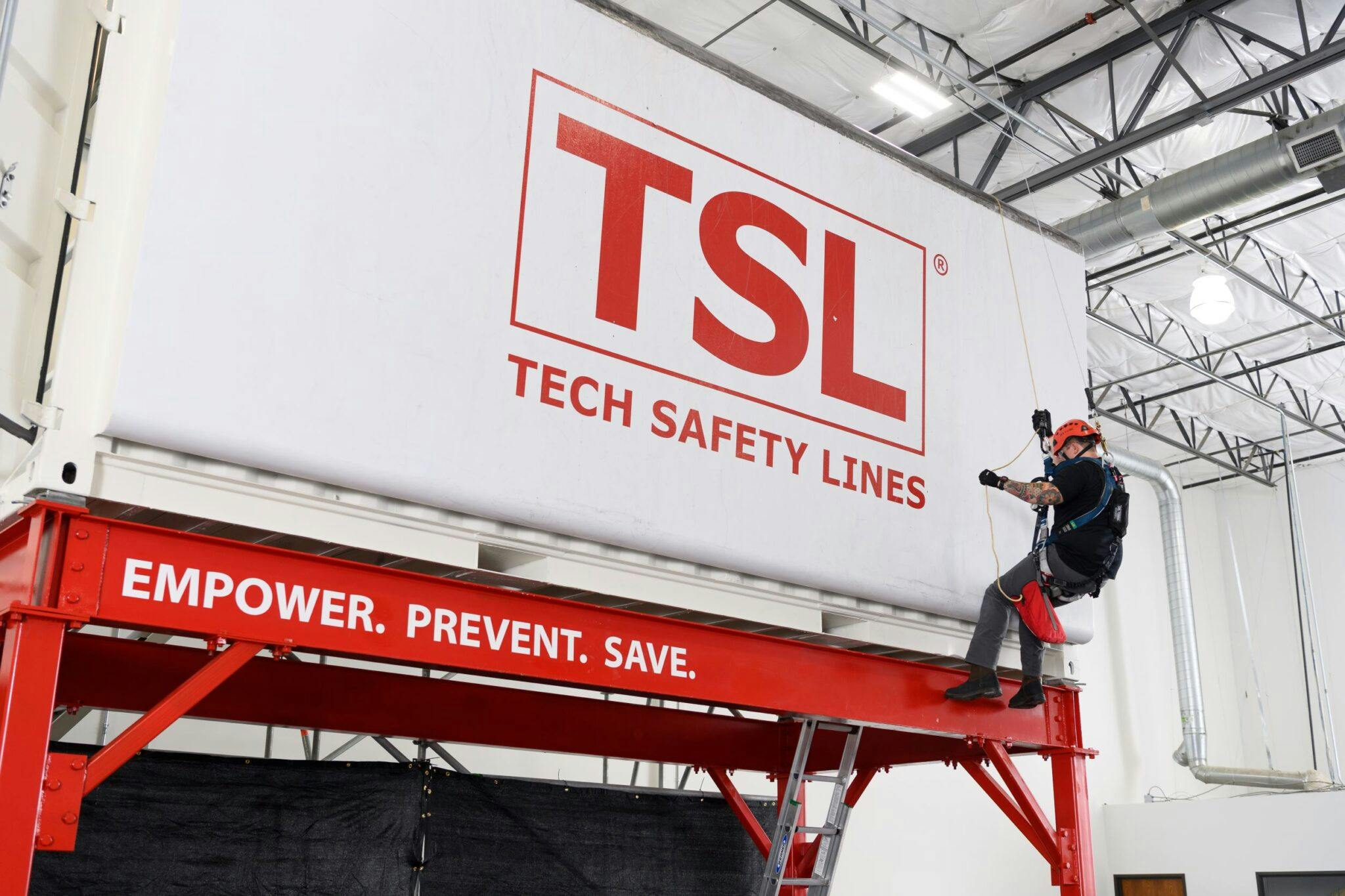
GWO: Basic Safety Training
Tech Safety Lines is the proud recipient of the GWO Training Company of the Year award across North and South America.
